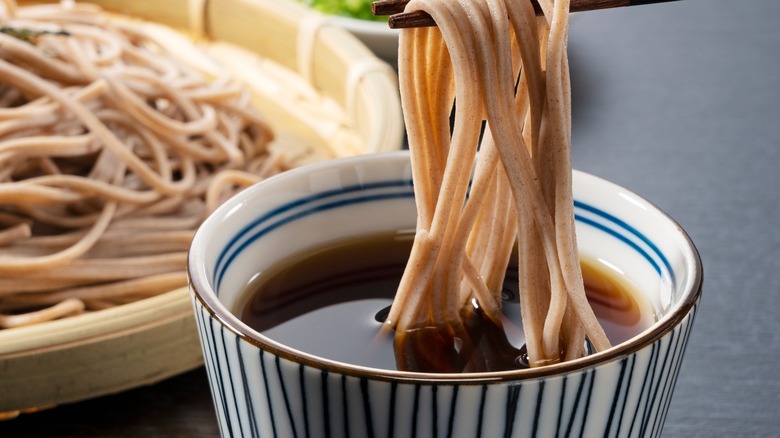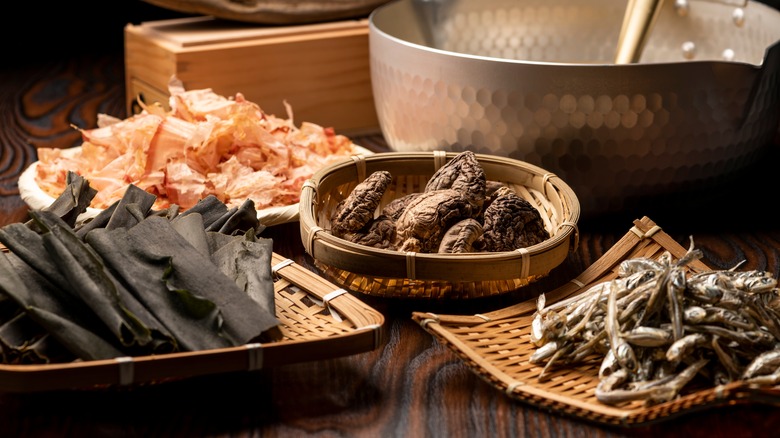Mentsuyu Is The Versatile Sauce Used Across Many Japanese Dishes
If you're a fan of Japanese cuisine, you've most likely come across mentsuyu — commonly called tsuyu for short. It's a versatile, all-rounder sauce that gets used as a broth base for just about any kind of noodle dish in Japan. That sweet-salty taste of tsuyu ramen, plain udon, and cold soba broth all come from the same delicious concoction of soy sauce, sugar, mirin, and the iconic combination of kombu and katsuobushi, aka dried kelp and bonito flakes.
Since kombu and katsuobushi are the main components of dashi, many mentsuyu recipes will just call for premade dashi instead for the sake of convenience. However, those wanting to control the sodium content — or who dislike the taste of premade dashi — will find that tsuyu is an incredibly simple thing to make at home with no special tools. The ingredients themselves are extremely customizable to taste: You'll find many variations that cut out the sugar, add an extra serving of plain cooking saké, or include shiitake mushrooms. With so many ingredients contributing to a complex flavor profile, mentsuyu truly is a do-it-all sauce packed with umami and ready to transform into a delicious noodle broth with just a little bit of added water.
How mentsuyu is made
There are many ways of making mentsuyu at home, the simplest of which is to combine and boil all the ingredients in one go. You'll also find many recipes that instruct you to boil the soy sauce, sugar, and mirin into a base before adding the dashi ingredients. Called kaeshi or sometimes hon-gaeshi, this simmered base can be used as a sauce in its own right and is often poured over eel dishes. While it adds an extra step, creating the kaeshi base first allows you to save some of the simmered sauce for other dishes before incorporating the dashi.
If you want an extra kick of umami in your tsuyu sauce, you can even soak the dashi ingredients in your kaeshi base overnight to really unlock the rich and complex flavors. One important thing to note is that the simmering process of making tsuyu will result in a concentrated mixture that needs to be diluted before it can be used as broth or sauce. This also applies to most store-bought versions of tsuyu. Keep in mind that diluted mentsuyu will expire faster than its concentrated form. Diluted tsuyu should be refrigerated and consumed within a few days, while store-bought tsuyu will last three weeks in the fridge after opening. Homemade tsuyu concentrate has a slightly shorter shelf life of two weeks in the fridge if stored in a clean, airtight container and refrigerated promptly after creation.

